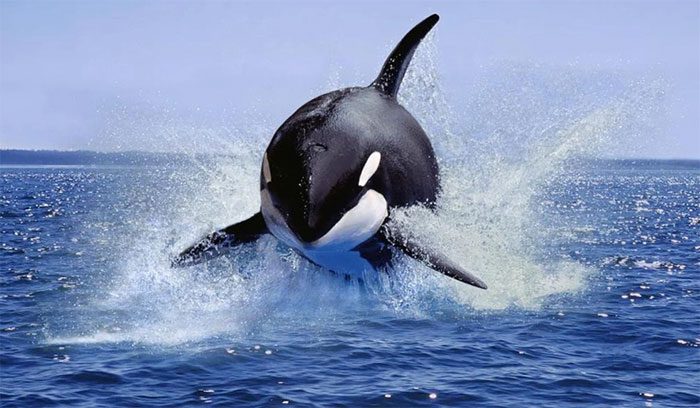Since 2020, a pod of orcas in the Strait of Gibraltar has been ramming boats, pressing their bodies and heads against the hulls, and even biting off rudders.
According to the Guardian, over the past three years, more than 500 incidents of collisions between boats and orcas have been documented. Three boats have sunk, and dozens more have been damaged in the Strait of Gibraltar — the passage from the Atlantic Ocean to the Mediterranean Sea.
In response to this situation, on July 11, Portugal issued a ban on boats approaching orcas. This ban primarily affects tourist vessels that provide whale-watching services.
The story of this pod of orcas (also known as killer whales) has captured global attention. What has led to this unprecedented behavior?

Orcas – (Photo: iSTOCK).
Ramming Boats for… the Pleasure of Rubbing Against Their Hulls?
Research may offer differing viewpoints, but they all share a common conclusion: in orca society, they operate under a “matriarchal” system, so all behaviors of the pod are aligned with the leading females.
The second unified conclusion: orcas do not intend to attack humans. If they wanted to, they could easily attack or prey on swimmers, but they do not do so.
“This could be a playful act of curiosity,” states a 2021 report on orca behavior from the GTOA (Atlantic Orca Working Group), a research initiative involving scientists from Spain and Portugal.
This hypothesis is quite popular among scientists and is supported by Philip Hoare, author of the famous works on the sea, Leviathan and Albert and the Whale.
Hoare has attempted to interact with whales in Sri Lanka, where a small whale rammed and attacked his boat: “I have never felt so excited and terrified in my life. They are incredibly powerful, intelligent, and extremely well-organized.”
The hypothesis suggests that the fiberglass hull of boats may provide a pleasant sensation, and orcas might enjoy the feeling of rubbing their skin against the smooth surface of the vessel.
Some pods of orcas in Canada appear to enjoy rubbing themselves on smooth pebbles. Biologist Tom Mustill further explains that this could also be a trend of orcas greeting humans.
Social learning—from one another—is clearly documented in orca culture. Barbara J. King, an emeritus professor of anthropology at William & Mary University in Virginia and author of the book Animals Best Friends, states: “These are cultural creatures. In orca society, the females lead. They are very attuned to each other’s behaviors, so whatever the leading females do, the entire pod follows.”
Are Orcas Seeking Revenge?
The Atlantic Orca Working Group’s 2021 report also suggests that the interactions of the orcas may sometimes be reactions based on the individual experiences of each whale.
With a unique “matriarch” in the pod, it seems that these violent interactions began after an injury or entanglement with the ship’s rudder in the past, prompting “her” to act, leading the entire pod to follow. Over time, this became a habit.
According to the journal Marine Mammal Science, scientists have documented orcas displaying violent behaviors, and it seems they have taught others to do the same. They have also witnessed a group of orcas attacking, killing, and feeding on a blue whale.
King states: “Whatever the orcas are doing, I recognize that there are harms caused by humans.”
“I support the idea of marine reserves for orcas. They need peace to forget the painful memories from collisions, to heal their emotional wounds, so that one day only happy memories with humans remain, as they once had.” she asserts.


















































